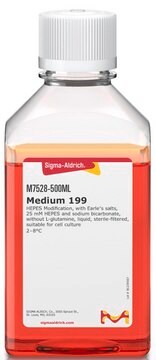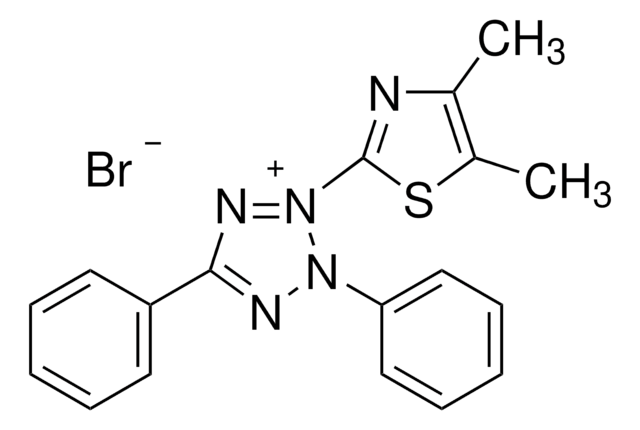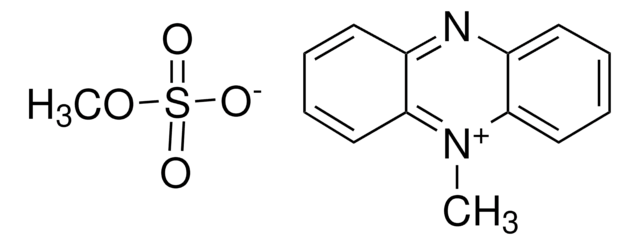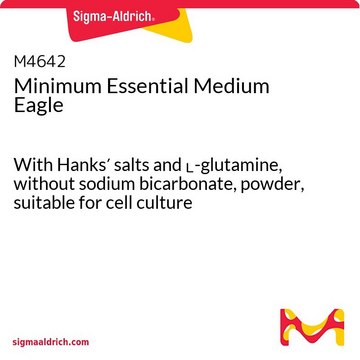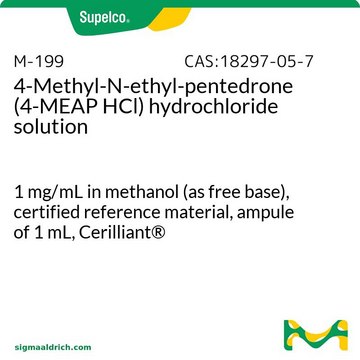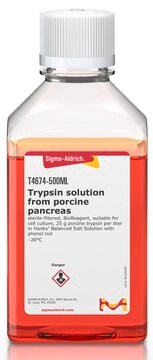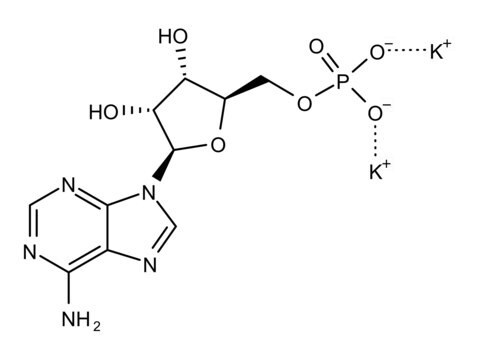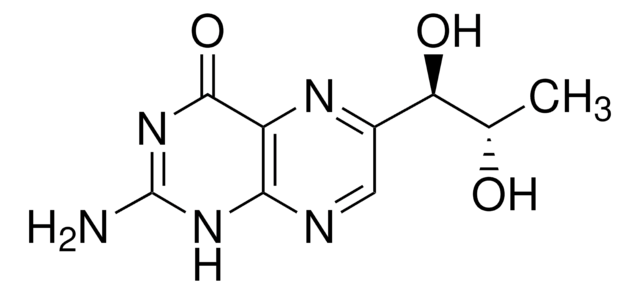M0393
Medium 199
With Hanks′ salts and ʟ-glutamine, without sodium bicarbonate, powder, suitable for cell culture
Synonym(s):
M199 Medium, TCM 199
About This Item
Recommended Products
Product Name
Medium 199, With Hanks′ salts and L-glutamine, without sodium bicarbonate, powder, suitable for cell culture
form
powder
technique(s)
cell culture | mammalian: suitable
components
HEPES: no
Hanks’ salts (2% CO2): yes
sodium pyruvate: no
NaHCO3: no
L-glutamine: yes
phenol red: yes
shipped in
ambient
storage temp.
2-8°C
Looking for similar products? Visit Product Comparison Guide
General description
Application
- to test and determine the pH sensitivity of the sensors in a complex environment
- as a culture medium during oocyte harvesting
- as a component of Leishmania donovani (LdBOB) promastigote media for culturing L. donovani
- to culture visceral adipose tissue explants
Quantity
Reconstitution
also commonly purchased with this product
Storage Class Code
11 - Combustible Solids
WGK
WGK 3
Flash Point(F)
Not applicable
Flash Point(C)
Not applicable
Choose from one of the most recent versions:
Certificates of Analysis (COA)
Don't see the Right Version?
If you require a particular version, you can look up a specific certificate by the Lot or Batch number.
Already Own This Product?
Find documentation for the products that you have recently purchased in the Document Library.
Customers Also Viewed
Our team of scientists has experience in all areas of research including Life Science, Material Science, Chemical Synthesis, Chromatography, Analytical and many others.
Contact Technical Service

